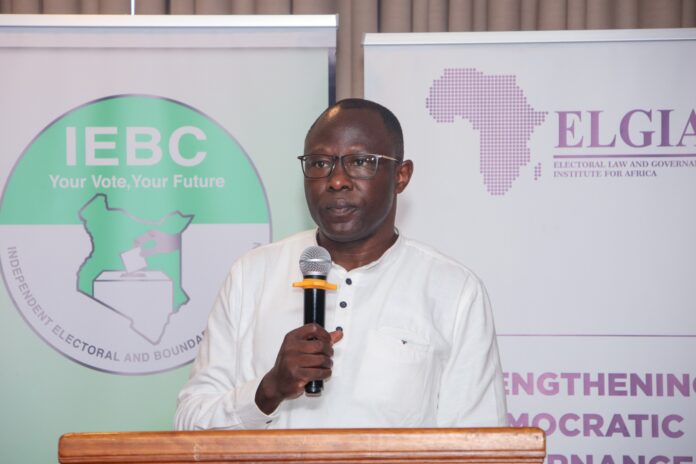Despite constitutional guarantees under Article 104, Kenyans currently have no legal means to recall under performing Members of Parliament or Senators—a reality confirmed by the Independent Electoral and Boundaries Commission (IEBC) in a recent statement.
The Commission cited the absence of an enabling law as the reason it cannot act on recent recall petitions targeting MPs.
This legal gap stems from a 2017 High Court ruling in the case of Katiba Institute and Transform Empowerment for Action Initiative (TEAM) v Attorney General & Another, which struck down key sections of the Elections Act, 2011 governing the recall process.
The court deemed the provisions discriminatory and unconstitutional.
While Parliament later amended the law to facilitate the recall of Members of County Assemblies (MCAs), no corresponding legislation has been enacted to cover MPs or Senators.
IEBC Chairperson Erastus Ethekon explained that the Commission fully supports the right of voters to hold leaders accountable, but its hands are tied in the absence of clear legal provisions.
“The Commission stands ready to facilitate the process without fear, favour, or hindrance,” Ethekon said.
He added that the Commission is actively processing petitions to recall MCAs where all statutory conditions have been met.
“The Commission is actively processing petitions for recall where validly submitted,” he noted. “But for MPs and Senators, the situation is different.”
Ethekon further revealed that the Commission had received four petitions seeking the recall of national legislators but is unable to act on them.
He clarified that each of the four petitions would be reviewed individually, “but within the limits of existing law.”
The IEBC’s position has reignited public debate, especially among legal and civil society groups who have long warned about the weakening of public oversight mechanisms. The Law Society of Kenya (LSK) is among those pushing for urgent legal reform.
“Unfortunately, the necessary legal reconciliation was never done,” said LSK President Faith Odhiambo.
“As a result, the right has been suspended both in law and practice.”
Odhiambo warned that the continued inaction by Parliament undermines Article 104 and the broader principle of public sovereignty as outlined in Article 1 of the Constitution.
Parliament is now under pressure to act swiftly, with attention turning to the Elections (Amendment) Bill—Senate Bill No. 29 of 2024, currently awaiting its second reading in the National Assembly.
The Bill seeks to realign the Elections Act with the 2017 court ruling by deleting the invalidated provisions, including the requirement to file recall petitions in the High Court and restrictions on voter eligibility.
However, the LSK has raised concerns that the Bill may overreach, narrowing the circumstances under which MPs or Senators can be recalled.
“The disturbance of the threshold for removal is unnecessary and was not contemplated by the Court,” said Odhiambo.
“Parliament must uphold the true spirit and intent of Article 104 and Chapter Six of the Constitution on leadership and integrity.”
In its concluding remarks, the IEBC said it has already submitted formal recommendations to Parliament, urging the enactment of a constitutionally sound legal framework for recalling MPs and Senators.
Until then, the public remains unable to exercise one of their most critical tools of democratic accountability.

